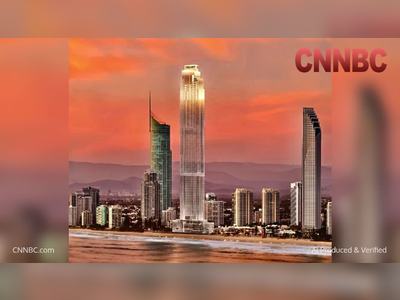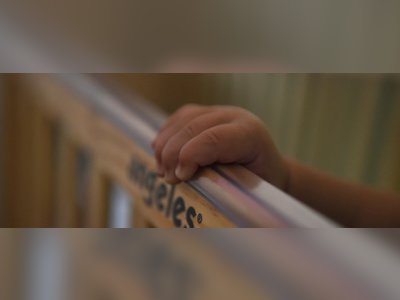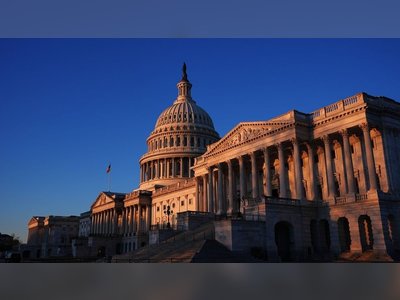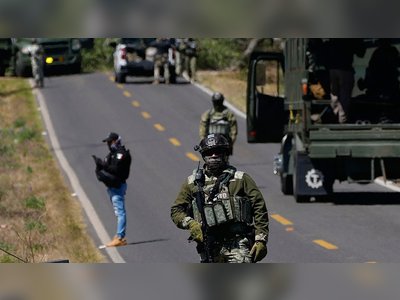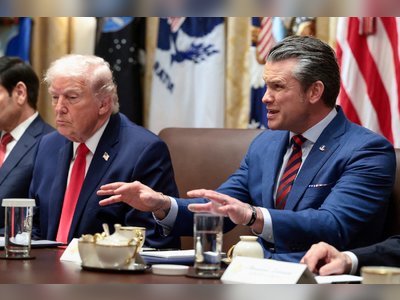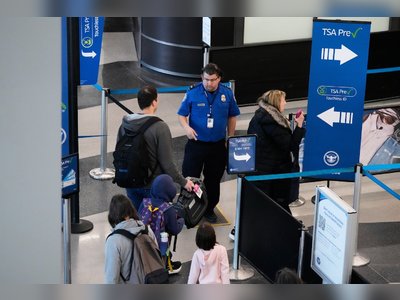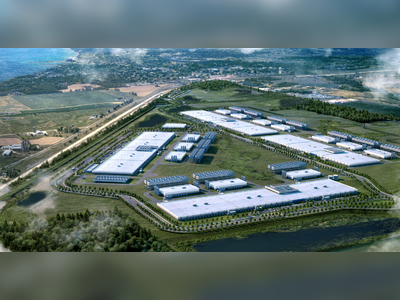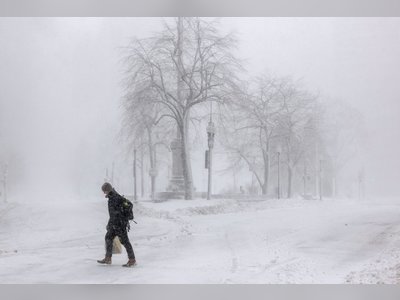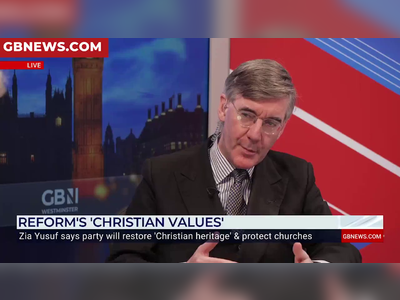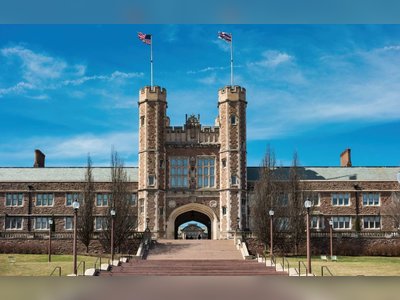Romanian Demonstrators Call for Reversal of Presidential Election Cancellation
Thousands gather in Bucharest, urging the delayed election to proceed and calling for the resignation of President Klaus Iohannis.
Tens of thousands of Romanians flooded the streets of Bucharest on Sunday, calling for the reinstatement of the cancelled presidential election and the resignation of outgoing President Klaus Iohannis.
The protests arose after Romania’s top court controversially decided on December 6 to annul the presidential election, barely two days before the second-round vote.
The court's decision came amid accusations that frontrunner Calin Georgescu had gained an advantage from an unfair social media campaign, allegedly orchestrated by Russia, a claim Moscow has denied.
The court ordered a complete rerun of the election, but the government has not yet set a definitive date, although party leaders have agreed to hold the election in two rounds on May 4 and May 18. Iohannis, whose term ended on December 21, will remain in office until a new president is chosen. Protesters, including members of the opposition hard-right Alliance for Uniting Romanians (AUR), expressed outrage at the cancellation, with some insisting the election proceed as originally planned.
AUR leader George Simion demanded that the second round of the election take place immediately, saying, “We ask for a return to democracy by resuming the election with the second round.” While protest organizers claimed 100,000 participants, riot police estimated the crowd to be around 20,000.
The protest featured chants of “Freedom” and demands for the election to be reinstated. Among the protesters was Bogdan Danila, a truck driver, who criticized Iohannis for his ten-year tenure, accusing politicians of betraying the people and being corrupt.
Some protesters carried portraits of Georgescu or Christian Orthodox icons, while vendors sold Romanian flags and vuvuzelas.
One protester, Cornelia, an economist, demanded that authorities disclose the reasons behind the election's cancellation and provide evidence to justify the decision.
“At this rate, we won’t be voting anymore,” she remarked, implying that the government might impose a leader “like in the old days.” The future of Georgescu’s candidacy remains uncertain, particularly given his opposition to Romania’s support for Ukraine against Russia’s invasion.
It is still unclear whether Georgescu will be allowed to run for president again, as the rerun of the election is being closely observed by both domestic and international onlookers.
The protests arose after Romania’s top court controversially decided on December 6 to annul the presidential election, barely two days before the second-round vote.
The court's decision came amid accusations that frontrunner Calin Georgescu had gained an advantage from an unfair social media campaign, allegedly orchestrated by Russia, a claim Moscow has denied.
The court ordered a complete rerun of the election, but the government has not yet set a definitive date, although party leaders have agreed to hold the election in two rounds on May 4 and May 18. Iohannis, whose term ended on December 21, will remain in office until a new president is chosen. Protesters, including members of the opposition hard-right Alliance for Uniting Romanians (AUR), expressed outrage at the cancellation, with some insisting the election proceed as originally planned.
AUR leader George Simion demanded that the second round of the election take place immediately, saying, “We ask for a return to democracy by resuming the election with the second round.” While protest organizers claimed 100,000 participants, riot police estimated the crowd to be around 20,000.
The protest featured chants of “Freedom” and demands for the election to be reinstated. Among the protesters was Bogdan Danila, a truck driver, who criticized Iohannis for his ten-year tenure, accusing politicians of betraying the people and being corrupt.
Some protesters carried portraits of Georgescu or Christian Orthodox icons, while vendors sold Romanian flags and vuvuzelas.
One protester, Cornelia, an economist, demanded that authorities disclose the reasons behind the election's cancellation and provide evidence to justify the decision.
“At this rate, we won’t be voting anymore,” she remarked, implying that the government might impose a leader “like in the old days.” The future of Georgescu’s candidacy remains uncertain, particularly given his opposition to Romania’s support for Ukraine against Russia’s invasion.
It is still unclear whether Georgescu will be allowed to run for president again, as the rerun of the election is being closely observed by both domestic and international onlookers.






